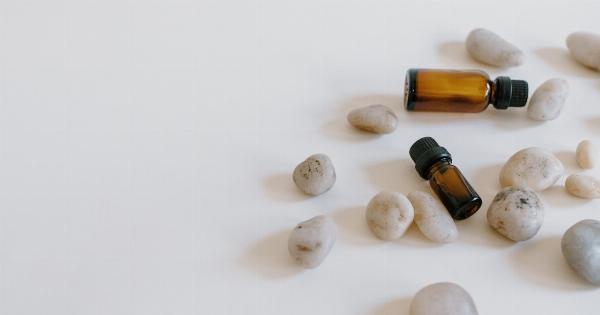Headaches are a common ailment that everyone experiences at some point in their lives. It can be caused by different factors such as stress, dehydration, lack of sleep, or underlying health conditions.
While over-the-counter medicine can provide relief, it’s not the only solution. Here are seven quick fixes that can alleviate your headache:.
1. Drink More Water
Dehydration is a common cause of headaches. Our bodies need water to function correctly, and brain function can be negatively affected when we don’t stay hydrated. Aim for eight glasses of water per day to avoid becoming dehydrated.
If you feel a headache coming on, try drinking water as it could help reduce the pain.
2. Practice Deep Breathing
When you are stressed, your muscles can tighten, causing tension headaches. Practicing deep breathing exercises can help relax your muscles and reduce stress levels.
Find a quiet place to sit and take deep breaths in, hold for a few seconds, and then exhale slowly. Doing this for a few minutes can help alleviate your headache.
3. Apply Heat or Cold to the Affected Area
Applying heat or cold can help reduce headache pain and inflammation. Depending on the cause of your headache, one of these options may work better than the other. If you have a tension headache, try applying heat to the affected area.
Use a heating pad or a warm towel. If you have a migraine, try applying a cold compress to your forehead or back of your neck.
4. Try Aromatherapy
Aromatherapy can help alleviate headache pain. Essential oils such as peppermint, eucalyptus, and lavender are known to have analgesic and anti-inflammatory properties that can help soothe headaches.
Diffuse these oils in your room or apply them topically to your temples and neck. However, if you have sensitive skin, be sure to dilute the oils before applying.
5. Get Adequate Sleep
Lack of sleep or poor sleep quality can trigger headaches. Aim for seven to eight hours of sleep per night to avoid sleep-related headaches. If you have trouble sleeping, create a sleep-friendly environment by making your room cool, dark, and quiet.
Avoid using electronic devices before bedtime, as the blue light emitted can disrupt your sleep.
6. Take a Break from Electronic Devices
Staring at a screen for an extended period can cause digital eye strain, which can lead to headaches. Taking breaks from electronic devices can help reduce the strain on your eyes and alleviate headache pain.
Try the 20-20-20 rule, which involves taking a break every 20 minutes and looking at something 20 feet away for 20 seconds to reduce eye strain.
7. Practice Yoga or Stretching
Yoga and stretching can help relieve tension and stress, which can lead to headaches. Certain yoga poses, such as the child’s pose, cat-cow, and downward-facing dog, can help stretch your neck and shoulder muscles, reducing tension headaches.
Simple stretches like neck rotations and shoulder shrugs can also loosen tight muscles to help reduce headache pain.





























